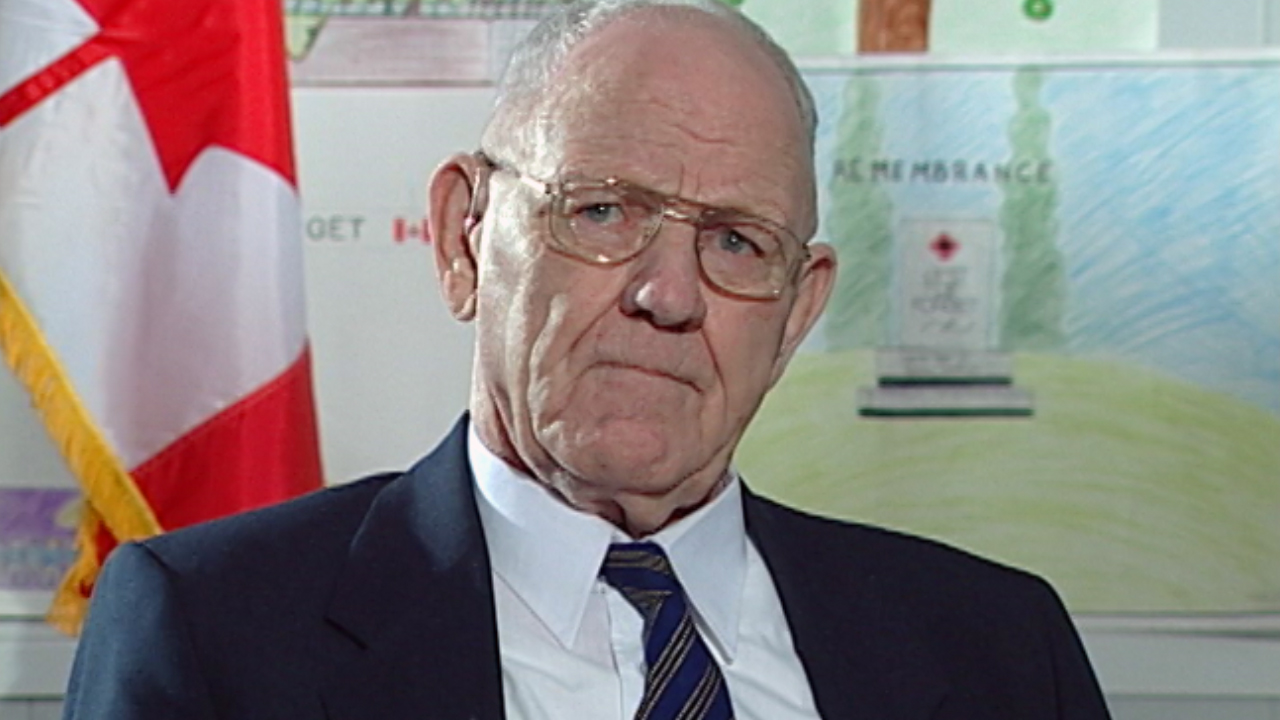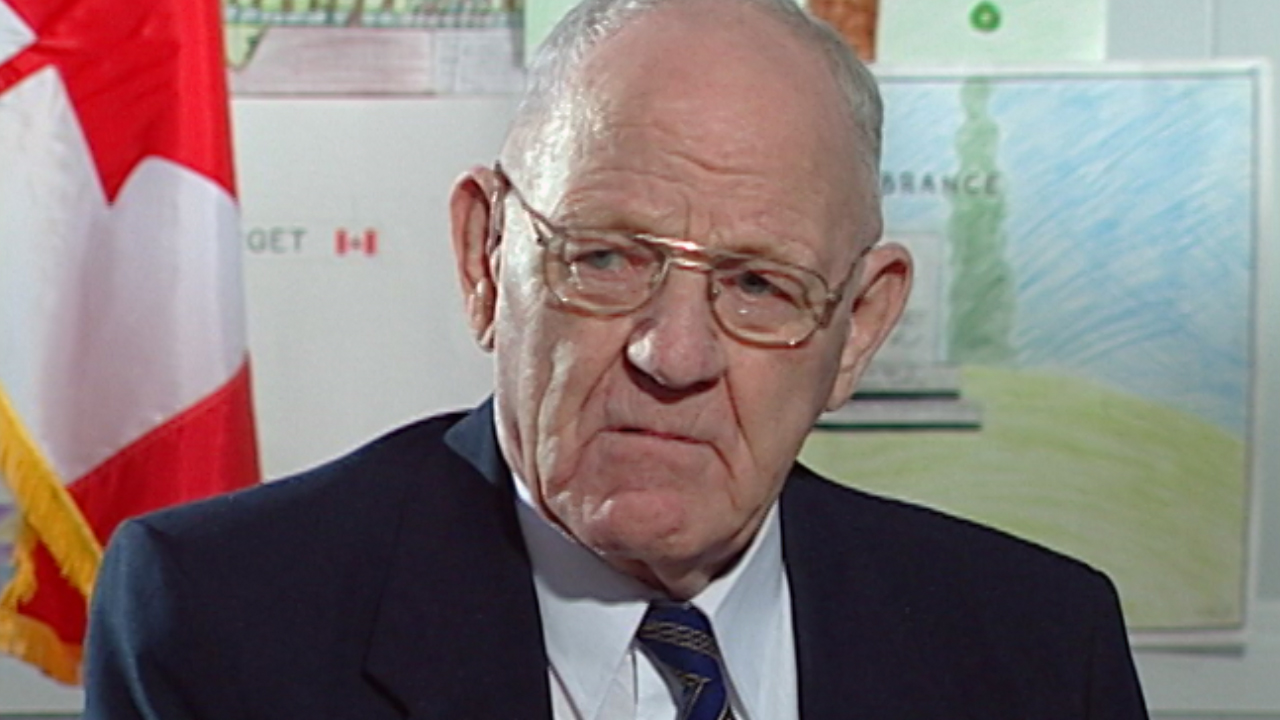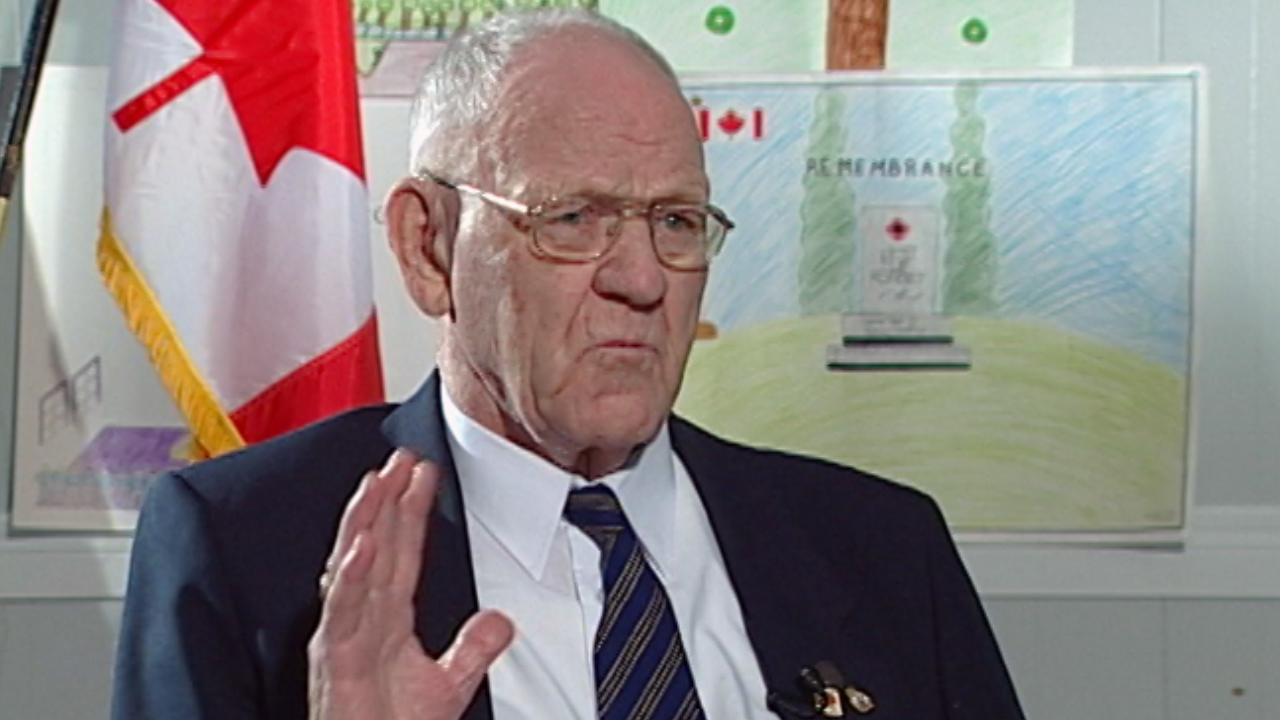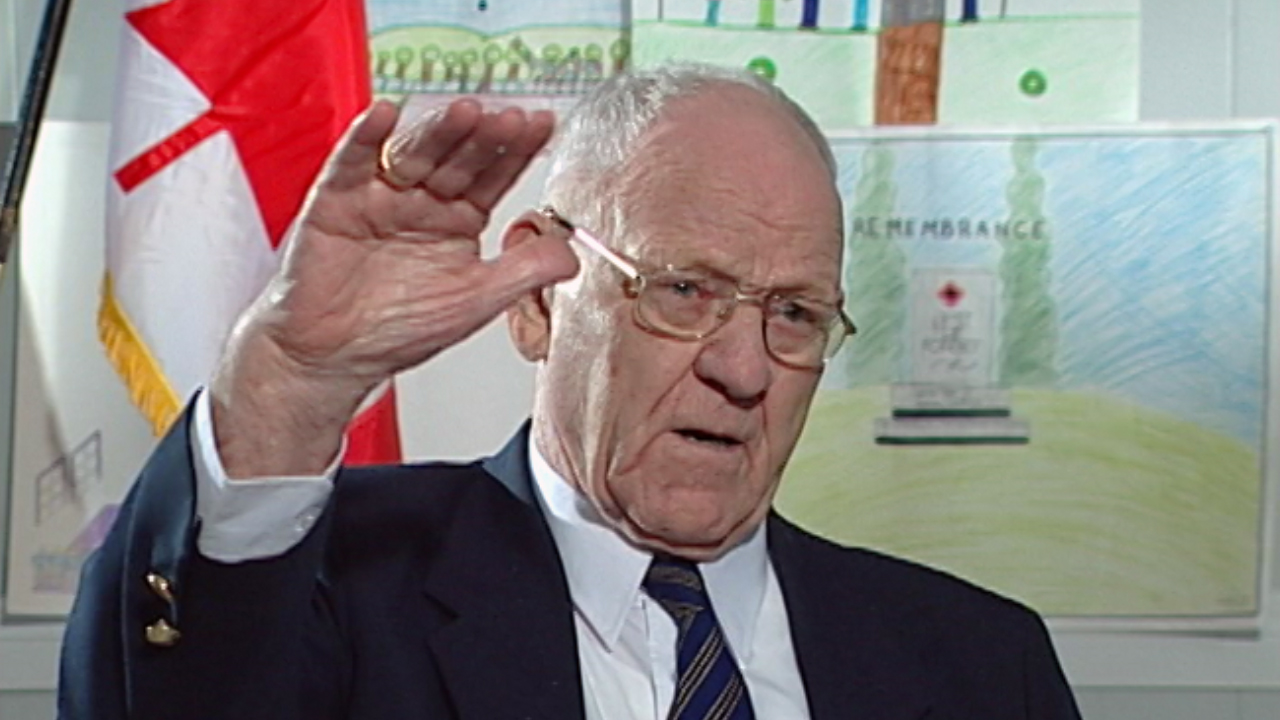And I went up in the occupation afterwards. At that time, I was
pretty disgusted with the whole thing and everything. I had
been with the regiment for, oh, I had been in the regiment a
little over a year. And there was a lot of reinforcements that
come to the regiment that had been in Canada until just before
the war was over. And, of course, then they shipped everybody,
anybody at all, they had to go.And it was them that was ... they
had been in the service from ’39. And they had points enough
it was a point system - and after the war was over, we had the
choice. And I don’t know of either … the first choice was to go
home, second choice was occupation, the third choice was Japan.
And after you had time to think it over, you’d wonder why that
you’d put in for anything else but Japan. Because we all knew
right well that if the war kept on, we’d all be going. It
wouldn’t make any difference where we signed up for, we’d be
going. But I signed up for home first, naturally first, or
occupation. And of course I went on occupation and I never was
sorry. It was one of the best educations I got, was the
occupation. Because German people wasn’t one bit different than
we were. But after we got up there, we were doing – the bunch
that I was with - we were doing guard on ammunition dumps,
places like that, that’s what we were guarding. And the
civilian people, when we went up first, you wasn’t supposed to
even speak to them. You carried arms of some kind with you all
the time. Well, we weren’t there a week ‘til we were going
around without one thing at all, just going around. And the
English weren’t too far from us and the Americans was there too,
and of course, they were just... But the English, we used to
laugh great at them. They’d go for … they’d have a pot of tea
boiling some place and they’d go. And you’d see them going to
get their tea, and they’d have their rifle slung over their
shoulder and their coffee mug or tea mug on top over the end of
the barrel. But we mixed right in with them as soon as we got
there. They never done anything for us talking to them. We
weren’t supposed to, but the civilians were just as nice to us
as ... you just, we couldn’t believe it ourselves. We used to
take our wash out to the civilians to get our wash done,
sometimes, and this woman – she was quite an old lady - and of
course, the language was hand language and stuff, and tea was
one thing they hadn’t seen for years. And this old lady, she
was wishing that she had tea, she’d love to have tea. So I
wrote to my mother and I told her and she sent me a box, sent me
a pound of tea in it. And of course, in no time at all, I don’t
know how they travel so fast, but it was no time at all, I got a
parcel from Mom and a pound of tea was in it. I took it out and
give it to this old lady. Well, it was just the same as if it
had been gold, it wouldn’t have been near as valuable to her.
She just couldn’t believe that anybody would do anything like
that, you know. It was just things like that, that you found
that the people, the civilians, they weren’t a bit different
than any of the rest of us. Just the nicest people as you’d ...
and even the prisoners that we worked there, there was quite a
few of them could speak English. We never had a bit of trouble
with them, not one bit of trouble with them at all.






